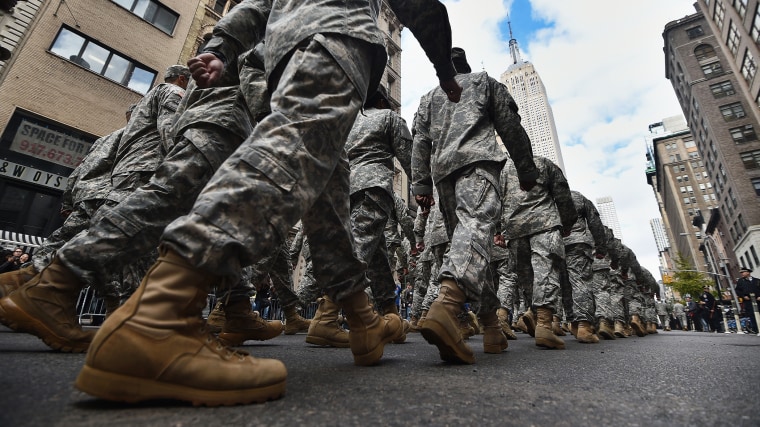It's been about five months since the Obama administration took the
historic step of opening all combat jobs to women. As Defense Secretary Ash Carter said at the time, "We cannot afford to cut ourselves off from half the country's talents and skills."
But as regular readers
know, it wasn't long before the next logical question came up: if there are no gender-related restrictions on combat service, why is the selective-service system limited to young men? The top uniformed leaders from the Army and Marine Corps have already
made the case that it's time for a change, too: there's no reason, they said, young women should be treated differently when it comes registering for a draft.
The ensuing debate has cut across lines in unexpected ways, with some prominent Republicans, including John McCain and Jeb Bush, endorsing equal treatment, while others, including Ted Cruz, have insisted the system must treat women differently.
All of this reached a new level on Capitol Hill this week, with an unexpected development in the House. NBC News
reported:
Women would be required to register for the military draft under a House committee bill that comes just months after the Defense Department lifted all gender-based restrictions on front-line combat units. A divided Armed Services Committee backed the provision in a sweeping defense policy bill that the full House will consider next month, touching off a provocative debate about the role of women in the military.
The funny part about all of this? The Republican author of the measure to require women to register for the draft opposes his own policy -- he brought it up to make a point, assuming his colleagues would vote against it, only to watch the whole scheme go sideways.
Rep. Duncan Hunter Jr. (R-Calif.), himself a combat veteran, is a fierce critic of women in combat roles. When he introduced his amendment this week to an annual defense spending bill, he hoped to spur a committee discussion about what a bad idea it would be to have women register for the draft,
Except, it didn't quite work out that way. The more Hunter's colleagues on the House Armed Services Committee debated Hunter's proposal, the more they liked the idea of treating men and women equally.
Hunter appeared to be frustrated at some points with the direction of the discussion so he tried even harder to emphasize just how miserable the draft would be for women. "This is about a big war," Hunter said. "This is about when something really really bad happens and goes wrong and America has to mobilize as a nation." Rep. Martha McSally (R-AZ) seemed worried that Hunter was going a bit off the rails in the discussion. She tried to emphasize how the draft was not really just for combat and the front lines. "I do want to correct my colleague from California as he painted the pictures that the only reason for the draft is to go into front line combat. That is not true. We all know many people who were drafted in World War II, Korea, Vietnam who served in other positions, not the infantry," McSally said. "We don't need to turn this into an emotional discussion. We want to make it be fact based."
And at the end of the fact-based debate, Hunter's bill, introduced in order for it to be defeated, ended up passing the GOP-led committee, 32 to 30.
Five committee Republicans joined Democrats in supporting the change.
The debate will continue, of course, but as the spending bill reaches the House floor, it's now officially the position of the House Armed Services Committee to change the status quo and require young women to register for the draft, just like young men.
